

Julieta Martínez: “El empoderamiento y la inclusión de las niñas en procesos y tomas de decisiones es una fuerza transformadora para alcanzar un futuro sostenible y en igualdad”
Evaluación de Conocimientos y Calidad Pediatría del Desarrollo. Discipline. Hybrid learning. Salud mental. English practice. Ries 3899. Et monitor report 2019 estonia en. 9789264251731 5 en. Veebi LifelongZGuidanceZinZEstoniaZ21ZveebZ03 19Z3. OCDE EDUCACIÓN. Education Policy Outlook Country Profile Estonia. Estonia: A Positive PISA Experience. Estonia is a small country with 1.3 million inhabitants.
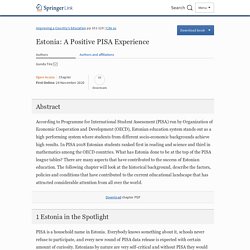
It covers 45,000 square kilometres and is larger than, for example, the Netherlands, Denmark or Switzerland. It is located on the Eastern shores of the Baltic sea in the Northern part of Europe and has borders with Russia on the East and Latvia on the South. It has beautiful, pristine nature, it is rich in forests and has more than 1500 islands along its coastline. The official language is Estonian which belongs to rare Finno-Ugric family of languages. Estonian population comprises 69% of Estonians, 25% of Russians and 6% of other ethnic groups (Statistics Estonia 2017).
OECD Better Life Index. Education plays a key role in providing individuals with the knowledge, skills and competences needed to participate effectively in society and in the economy.
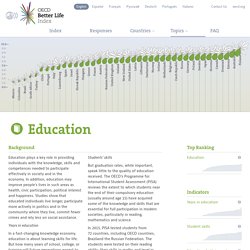
In addition, education may improve people's lives in such areas as health, civic participation, political interest and happiness. Studies show that educated individuals live longer, participate more actively in politics and in the community where they live, commit fewer crimes and rely less on social assistance. Years in education In a fast-changing knowledge economy, education is about learning skills for life. But how many years of school, college, or training will future generations expect to have?
Envisioning the future of education and jobs. Alamaki. Country profile Finland 2020. 14. 2235955. What is "gongbang," and why do students love it? — Observatory. Many specialize in the "Pomodoro" technique, a time management method that divides and complements work or study sessions with short breaks.
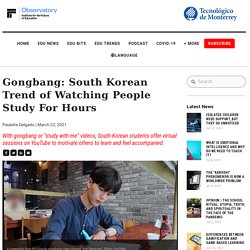
It is based on using a timer that divides work or study sessions into fixed 25-minute intervals called pomodoros. For example, a student concentrates for 25 minutes without stopping, rests 5 minutes, repeats it three times, and, finally, rests 15 minutes before starting again, if necessary. Each of these videos uses different times within the Pomodoro technique. Lessons from South Korea on the future of online education. The implementation of online education in South Korea has been relatively smooth, thanks to the country's excellent internet infrastructure.
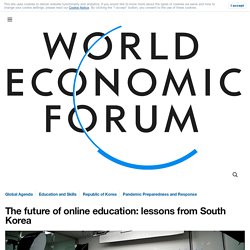
However, many students and teachers have expressed dissatisfaction with this new paradigm. Moving education online, as South Korea's experiences demonstrate, requires long-term, systemic change backed up with policy. Five innovative education trends from Korea. Education is one of the most powerful instruments for reducing poverty and inequality.
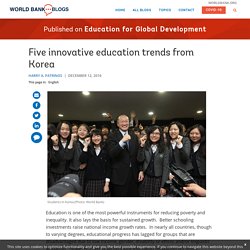
It also lays the basis for sustained growth. Better schooling investments raise national income growth rates. Youtube. Brochure Four OECD Scenarios for the Future of Schooling. Trends Shaping Education Interactive Workshop. Educationtrends.